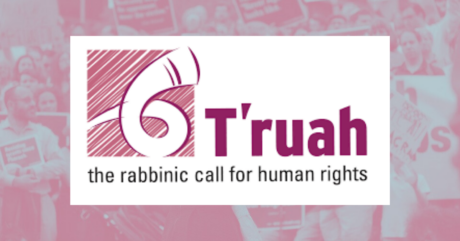In response to Amnesty International UK’s January 2022 report “Israel’s Apartheid Against Palestinians: Cruel System of Domination and Crime Against Humanity,” T’ruah affirms our commitment to protecting the human rights of Jewish Israelis, Palestinian citizens of Israel, Palestinian residents of the West Bank, Gaza, and East Jerusalem, and all others living under Israeli jurisdiction.
We object to many of the assertions, language choices, assumptions, and conclusions of Amnesty’s nearly 300-page report, many of which are inflammatory and overreaching. We certainly do not agree with the report’s assertion that Israel has carried out a system of apartheid since its establishment, nor do we agree that Israel is entirely responsible for the bloody events of 1948 or for the welfare of Palestinian refugees living in other countries. However, we will not use our numerous objections to this report as an excuse to avoid talking about the very real human rights abuses that Palestinians face every day.
Israel, like every sovereign state with membership in the United Nations, has an obligation to take the allegations of human rights organizations seriously. Amnesty International reports on more than 150 countries, virtually none of whose governments welcome critiques by human rights groups. Israel’s active attempts to dismiss the entire report as antisemitism, including lobbying American Jewish organizations to condemn it, represent an effort to distract from criticism of Israel’s human rights record. Criticisms of Israel’s human rights record can be difficult to read, whether they come from Israeli or international human rights organizations, but that does not make those criticisms inherently antisemitic. As our new resource “A Very Brief Guide to Antisemitism” explains, it is not a double standard to hold Israel to the same human rights obligations as every other country.
Israel has a responsibility to guarantee the human rights of all of its citizens and of all those living under its control — not despite the fact that it is a Jewish state but because it is a Jewish state. Jewish law is clear that to build a just society we must have mishpat echad, “one law” for everyone — citizen and non-citizen, rich and poor, powerful and vulnerable. Basic human rights under international law include the right to citizenship in a country, freedom of movement, freedom of speech, and the right to participate in political processes that affect one’s life. As always, T’ruah believes that both Jews and Palestinians living in Israel and the occupied Palestinian territories have the right to self determination, which we believe will best be realized by a Jewish democratic state side by side with a democratic Palestinian state.
Those truly dedicated to a just, negotiated resolution to the conflict should spend less effort on media outrage over human rights reports and more time working to end the occupation, stopping illegal evictions of Palestinians from their homes in East Jerusalem, protecting the human rights of both Israelis and Palestinians, and building an Israel that lives up to its Jewish and international obligations.
For the past 20 years, T’ruah has engaged rabbis and cantors throughout the United States and Canada in this sacred work, and we will continue doing so until all Israelis and Palestinians enjoy basic human rights in their shared homeland.

